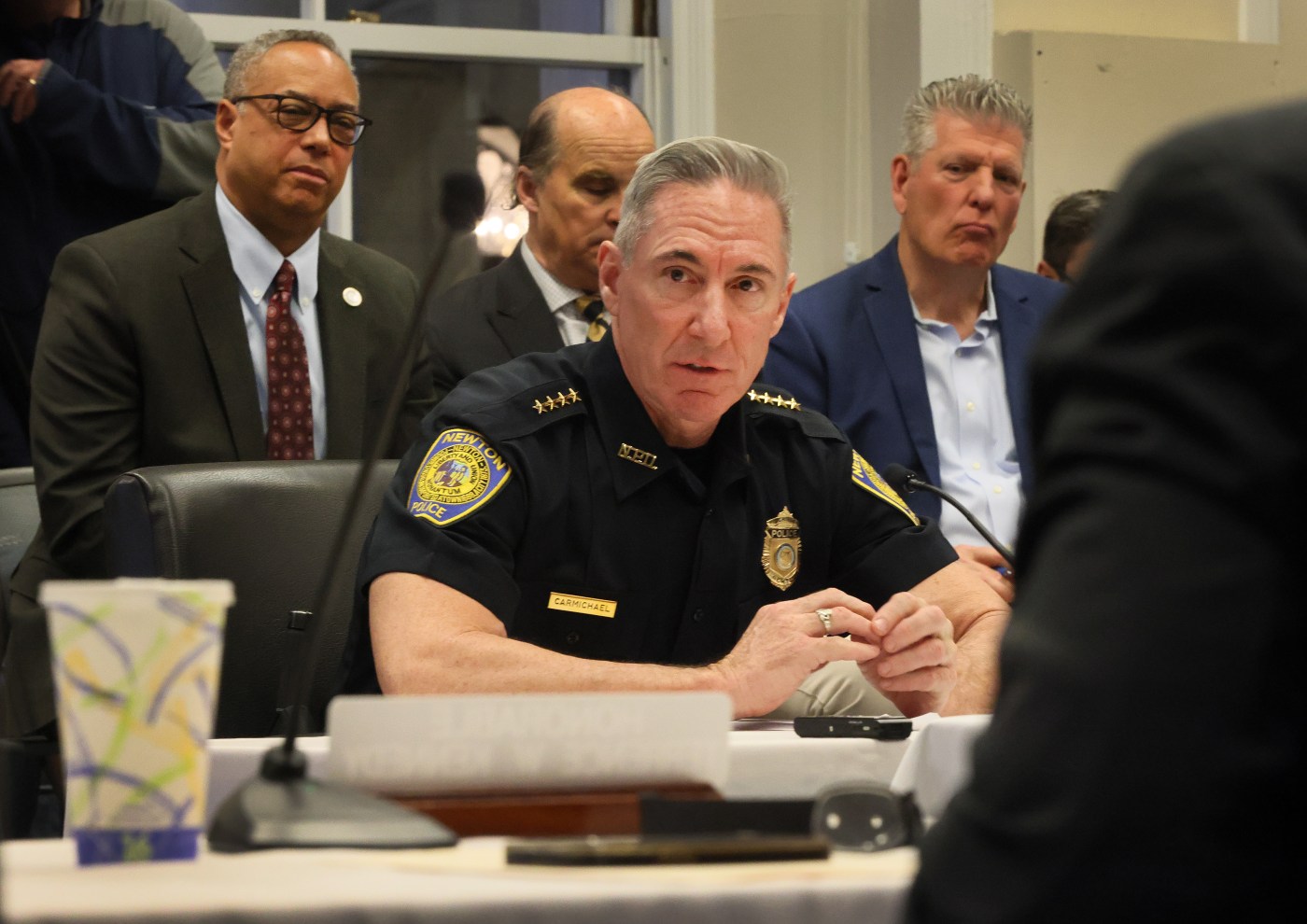
Massachusetts becomes first state to blanket pardon low-level marijuana charges
Massachusetts is now the first state to pardon the crimes of offenders charged with simple pot possession — after President Joe Biden did the same two years ago.
Gov. Maura Healey’s first-in-the-nation plan to issue a blanket pardon for simple marijuana possession was met with the unanimous approval of the Governor’s Council on Wednesday, when councilors expressed broad support but wondered if it went far enough for the potentially hundreds of thousands of people hit by the state’s now-defunct marijuana laws.
Healey’s pardon, according to the request for consent she sent to the council, would apply to “all adult persons who, on or before the date of this letter, have been convicted of a misdemeanor of possession of marijuana.”
According to Lt. Gov. Kim Driscoll, who chairs the Governor’s Council, the body’s vote means that anyone charged with a misdemeanor crime of marijuana possession before March 13 of this year is cleared of that crime with immediate effect.
“The exciting thing is, no one is required to take any additional action, they are pardoned, effective with the Governor’s Council vote,” Driscoll told reporters after the council’s approval of the plan.
Those with misdemeanor crime currently staining their record can apply for, but are not required to have, a certificate of pardon issued by the state. In the weeks to come, their records will be updated in the state’s court systems to show that past charges for marijuana possession are marked as “pardoned.”
Updating the records of the 70,000 to 100,000 Bay State residents with a marijuana crime in their past will take months, the state’s trial court told the Governor’s Council in written testimony. The court did not express an opinion on the pardon plan, but did say they are ready to begin the process of updating their records.
The fact that those arrests will stay on past offenders records seemed to be the only concern the Governor’s Council had with Healey’s plan, with more than one openly wondering if it might not be better to offer expungement for the marijuana possession.
“The only thing this pardon does is put a note on their record that they have been pardoned, it does not take it off their criminal record,” Councilor Terrence Kennedy noted. “If somebody gets a copy of their records — an employer or something — it’s still going to say that they were convicted of possession of marijuana and then pardoned.”
“Do you think we should be taking another step,” Kennedy asked Suffolk County District Attorney Kevin Hayden, suggesting expungement may be a better path.
“I don’t necessarily disagree with you on that point,” Hayden said, calling Kennedy’s interrogative “another question for another day.”
Kennedy also suggested the state could do more to notify people that their crime had been forgiven.
“Most people who have a marijuana conviction do not know what is going on in this room today,” he said.
Hayden made clear that the pardon had the support of the state’s District Attorneys, but that it would only impact simple marijuana possession charges. Those who were charged with possession in conjunction with another crime have not been pardoned of those other charges. Charges of possession with intent to distribute or higher level charges for trafficking in marijuana would also not be affected.
The ACLU of Massachusetts hailed the council’s vote as “life-changing” for those impacted.
“We applaud the Governor’s Council for swiftly approving this pardon. People in every community across the state – especially Black and Brown people, who were disproportionately charged with marijuana-related crimes over the years – will no longer be punished for something that is now legal in our state. Let’s be clear: Tens of thousands of people in Massachusetts will now get a second chance, and will face fewer barriers to housing, jobs, education, student loans, and stability,” Carol Rose, executive director of the ACLU of Massachusetts, said in a statement.
It is currently legal in Massachusetts to carry one ounce of cannabis and up to five grams of any concentrate outside of your home — including gummies and other pot products. Adults can also grow up to six pot plants in their homes.
At last count, 24 states — including the Bay State — have legalized recreational pot; 39 and the District of Columbia back medical marijuana, that also includes Massachusetts. According to polling, about 17% of U.S. adults are active marijuana users and 50% have admitted to trying the formerly forbidden drug.
Biden issued a pardon for those charged with federal marijuana possession law violations in 2022, in order to make, the president said then, the “promise of equal justice a reality.”
Suffolk DA Kevin Hayden stressed on simple possession of pot would be part of the pardons. (Nancy Lane/Boston Herald)


